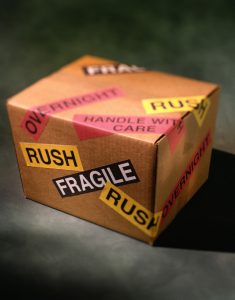Work With L.A. Cannabis Lawyer to Ensure Your Dispensary Carefully Screens Out Minors
California law prohibits children (under 21) from possessing, using, or buying cannabis. Marketing for marijuana must be tailored in a such a way that it’s less likely to reach them. Proposition 64 (California’s recreational marijuana law) requires a default buffer to keep dispensaries at least 600 feet away from schools, day cares, and youth centers; local ordinances be even more stringent in their requirements. Yet pot shops apparently aren’t doing a great job of keeping cannabis away from kids, according to new research.
A new study published in the journal JAMA Pediatrics took a look at how well state regulations intended to keep marijuana out of the hands of minors have been working. The analysis examined the practices of 700 licensed marijuana dispensaries in the state. Researchers discovered that kids can be exposed to both marketing and products, in spite of the restrictions on both.
Dispensaries are required by law to screen out customers who are underage. Many do this with blatant signage, having a checkpoint with mandatory ID (inside or outside), and tailoring marketing efforts where ads are unlikely to reach those under 21.
For this study, researchers close to the legal age cutoff (between the ages of 21 and 23) went into hundreds of dispensaries throughout California to document their screening process. Of the shops they entered, 97 percent were compliant with ID checks. However, only 12 percent verified customers’ ages outside the shop, and nearly 70 percent did not comply in having signs indicating age limits. For the most part, dispensaries were only requiring proof of age once the person was already inside, where both products and marketing materials were in plain view. Continue reading
 Cannabis Law Group's Medical Marijuana Legal Blog
Cannabis Law Group's Medical Marijuana Legal Blog






 Senate Bill 625
Senate Bill 625
 California dogs are increasingly getting high. While this may sound harmless or even amusing at first, it’s imperative that pet owners become aware of the dangers associated with marijuana exposure to animals, so that beloved fur family members can be kept out of harm’s way.
California dogs are increasingly getting high. While this may sound harmless or even amusing at first, it’s imperative that pet owners become aware of the dangers associated with marijuana exposure to animals, so that beloved fur family members can be kept out of harm’s way.

 the growing list of places where either recreational or medical marijuana is legal. Two of the states — Utah and Missouri — currently have no marijuana protections and would be looking to add medical. The inclusion of these two would bring the number of states with some form of legal cannabis to 32. Meanwhile, Michigan and North Dakota are no strangers to marijuana legislation, each one already having medical marijuana permissions in place while looking to move forward into recreational cannabis in November.
the growing list of places where either recreational or medical marijuana is legal. Two of the states — Utah and Missouri — currently have no marijuana protections and would be looking to add medical. The inclusion of these two would bring the number of states with some form of legal cannabis to 32. Meanwhile, Michigan and North Dakota are no strangers to marijuana legislation, each one already having medical marijuana permissions in place while looking to move forward into recreational cannabis in November.
 businesses opening their doors.
businesses opening their doors.